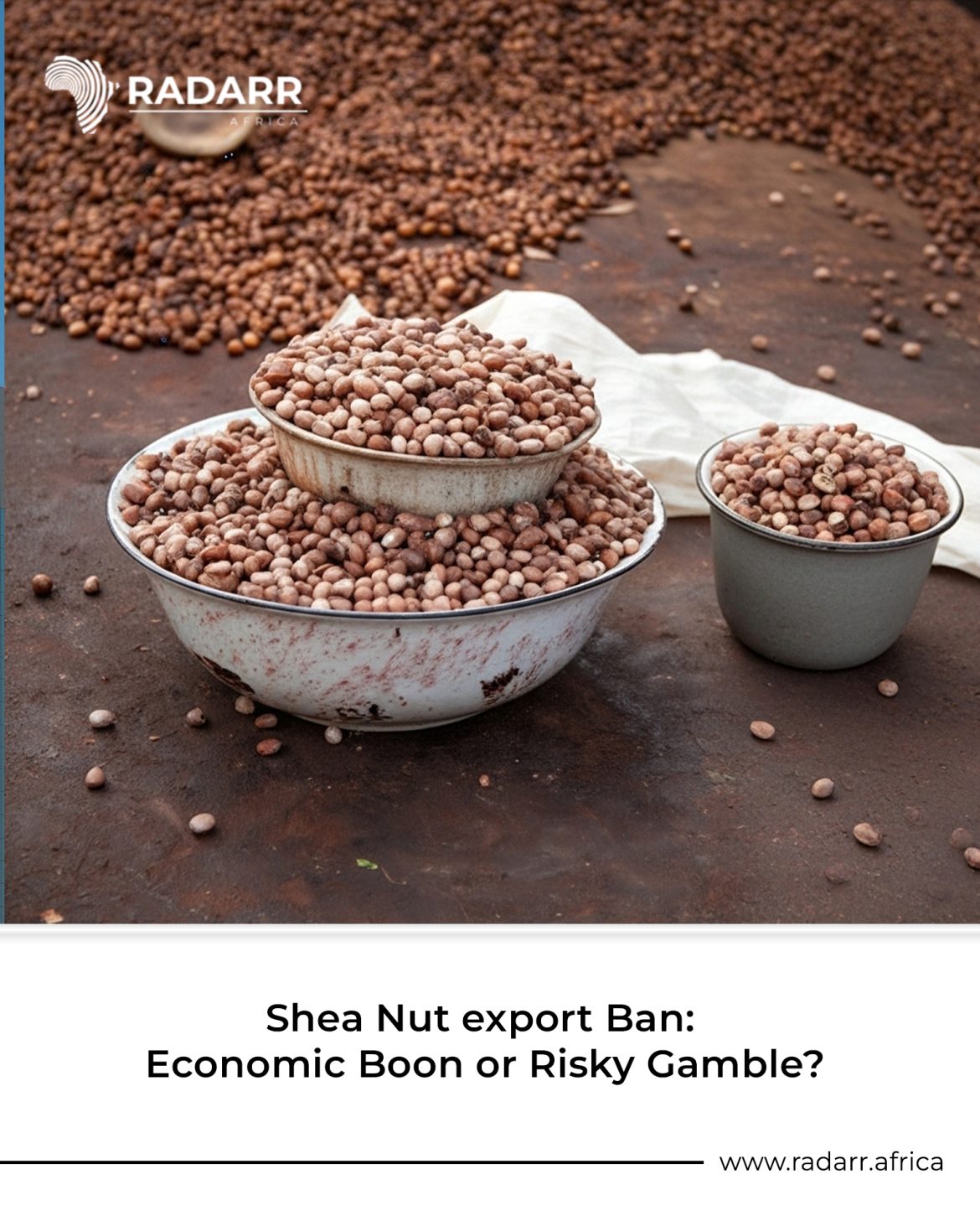Across northern Nigeria, the shea nut harvest season has always been a quiet but vital part of local economies. Women and farmers in villages across Zamfara, Sokoto, and Niger states rely on this crop for income, often turning it into shea butter that finds its way into cosmetics, food products, and international markets. Recently, the Nigerian government announced a ban on raw shea nut exports, a policy intended to encourage local processing and industrialization. While the move promises potential economic benefits, it also raises concerns about market disruption, farmers’ livelihoods, and the practical challenges of scaling domestic processing.
The reasoning behind the ban is clear. Nigeria exports large quantities of raw shea nuts to countries in Europe and Asia, where they are processed into high-value products before sale. Critics have long argued that Nigeria loses out on billions in potential revenue by exporting unprocessed nuts. By mandating local processing, the government hopes to capture more value domestically, create jobs in the manufacturing sector, and establish Nigeria as a global hub for shea butter and related products. For investors and entrepreneurs, this is an opportunity to invest in processing plants, packaging businesses, and value-added industries that could significantly boost the economy.
For local farmers, however, the policy is a mixed bag. On one hand, processed shea nuts and shea butter can fetch higher prices, providing better returns than selling raw nuts. On the other hand, the infrastructure for large-scale processing is still limited, particularly in rural areas. Farmers fear that without sufficient processing facilities or immediate market access, the ban could lead to a glut of unsold nuts, reduced cash flow, and uncertainty in the short term. Many smallholders depend on timely sales to fund daily expenses, school fees, and farm inputs, so any disruption can have real social consequences.
Economists point out that for the ban to succeed, the government and private sector must work together to build local capacity. This includes creating more processing centers, providing financing for small and medium-sized enterprises, and ensuring supply chain efficiency from farm to factory. Technology can also play a role, with mobile platforms connecting farmers to buyers, coordinating logistics, and providing market data to optimize pricing. Without these measures, the ban risks creating bottlenecks and reducing Nigeria’s competitive advantage in the global shea market.
Global market dynamics also matter. International buyers who are accustomed to sourcing raw nuts from Nigeria may turn to other African countries, such as Ghana and Burkina Faso, where processing mandates are less strict. Losing market share could undermine Nigeria’s long-term goals, particularly if domestic processing cannot immediately meet the volume and quality demanded by multinational buyers. For the ban to be an economic boon, Nigeria must ensure that local processors can produce consistently high-quality shea butter that meets global standards while scaling production to match or exceed previous export levels.
Yet, the potential rewards are significant. By processing locally, Nigeria could retain billions in export revenue, create thousands of jobs across the value chain, and stimulate growth in related sectors such as logistics, packaging, and export services. Entrepreneurs who move quickly to establish processing plants and distribution networks stand to benefit from a first-mover advantage. Beyond economic gains, the policy could also elevate Nigeria’s status in the global cosmetics and natural products market, turning shea nut production into a nationally celebrated success story.
Environmental and social impacts also play a role in this discussion. Shea nut harvesting is primarily done by women, and increased processing could empower them economically by offering more stable and higher-paying jobs. However, policymakers must consider training programs, access to credit, and equitable participation to ensure that these women benefit fairly. At the same time, environmental safeguards are necessary to maintain sustainable harvesting practices and avoid deforestation or overexploitation of shea trees, which are crucial to local ecosystems.
The shea nut export ban is thus a high-stakes gamble. It carries the promise of transforming Nigeria’s raw commodity exports into a robust industrial sector, boosting domestic revenue and creating jobs. At the same time, it introduces risks that could affect farmers’ livelihoods, supply chains, and international competitiveness. Success will depend on coordinated efforts from government agencies, private investors, and local communities, as well as a careful balance between regulation and market incentives.
In the end, the ban is more than an economic policy—it is a test of Nigeria’s ability to move from exporting raw materials to producing finished goods that compete globally. If executed well, it could serve as a blueprint for other sectors and signal a new era of industrialization across the country. If mismanaged, it could slow growth and hurt the very communities it is meant to empower. Either way, the world is watching, and Nigeria’s shea nut sector may soon become a defining story in the country’s economic transformation.
